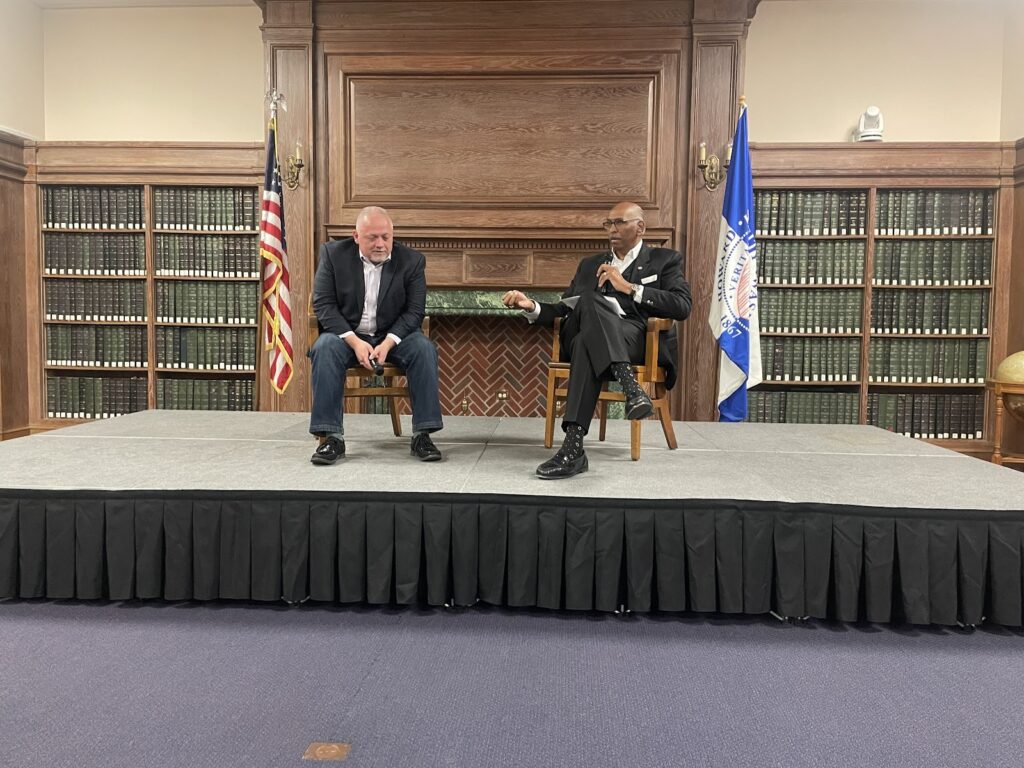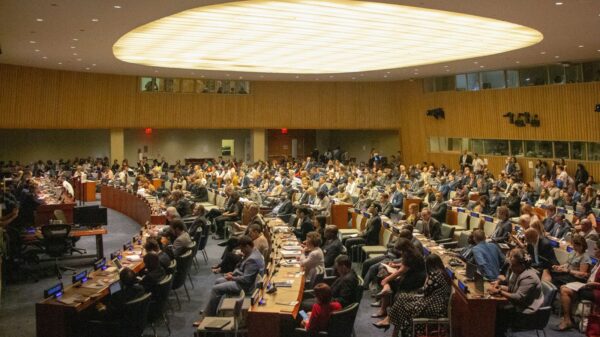
Michael Steele, the newly appointed endowed chair in public policy, and Congressman Denver Riggleman III, a former United States Representative, spoke about what contributes to the election process and how it’s been affected in recent years, citing the advancements in technology and social media as factors that add complexity to elections.
The fireside chat on Thursday titled “January 6th: Why Elections Matter and What Happens When Citizens Don’t” was a conversation touching upon attributes that contributed to the Jan.6th, 2021 capitol riots and the remnants of this event today and how technology has compounded this.
In attendance was a small group of faculty and students in the Founders Reading room. The setup included Steele and Riggleman, who were sat next to each other.
The chat is one of three lectures in a series, titled, “In Defense of Common Sense,” that in October, Steele announced he would be hosting when it was first announced he’d be taking the role as chair.
“Because elections are the foundations of our democracy,” Steele said. “They hold immense importance in empowering citizens to show accountability, fostering inclusivity contributing to global stability.”
“[Elections] provide individuals with the means to shape society,” Steele said when discussing why elections are important to society. As Steele described them, elections hold their leaders accountable “for the course of the nation’s development.” Through elections, according to Steele, democratic nations uphold their core values of freedom, equality and justice.
Riggleman also served as the senior advisor on the committee tasked with investigating the events leading up to Jan. 6. Through the service, he found how purported conspiracy theorists, such as QAnon, became popular.
Riggleman pointed out that modern social media and alternative media have fueled the rapid growth of ignorance and various belief systems. He likened it to the challenge of containing these ideas, comparing social media to a platform available to everyone, thus causing the widespread proliferation of these belief systems.
Riggleman conveyed that people’s beliefs often guide them to support a specific candidate without properly considering facts, leading them to believe they’re doing the right thing despite evidence suggesting otherwise.
“If you look at what happened on January 6,” he said, “they did they did believe the election was stolen based on the fact that they had already started down the path, fantastical things, probably as far back from the Tea Party movement, maybe as far back as 9/11.”
“I was very impressed with the speakers,” Jeremy Allman, a freshman honors political science major from Queens, New York, said. “They gave great examples and it made me have a different perspective.”
Initially, Allman considered it ” a small issue of conspiracy theories,” that have been seen floating around the internet. However, the discussion revealed to him that it was actually more significant than he had thought.
Students like Keshawna Washington, a freshman history and economics double major from Nashville, Tennessee, found the discussion about the events leading up to the Jan.6 riot shocking.
“This talk made the events of January 6th even more real than it was before,” she said. “To me, it felt like it was dimming, like, ‘okay guys we’re finally moving past it, everything’s fine.’” However, the words from Riggleman made Washington believe that everything wasn’t fine.
Steele also highlighted how various factors like money, voter suppression, gerrymandering, disinformation and negative campaigns erode democratic values like equality, transparency, and representation. These factors ultimately led to a significant event on Jan. 6 when Americans protested against the essential democratic principle of a peaceful transfer of power.
Copy edited by Alana Matthew













